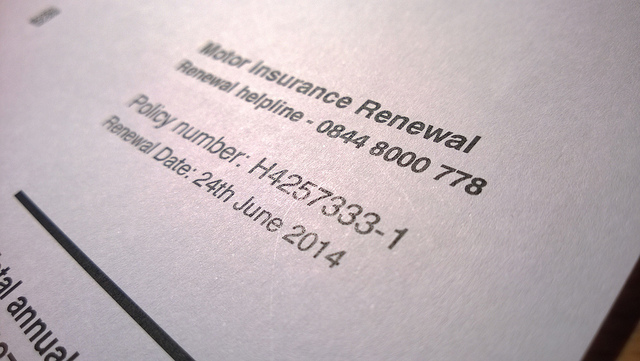Driving without insurance in New Jersey is a very serious matter, and for many years the New Jersey courts and politicians have taken steps to combat the rising problem of uninsured drivers. As the cost of insurance rose in New Jersey during the 80’s and 90’s, more and more people were driving without insurance. And sometimes, uninsured drivers hit and injured innocent people. Those injured people were not able to make a meaningful claim against the person who hit them and had to make a claim against their own insurance for Uninsured Motorist coverage (which made insurance even more expensive for people buying insurance). If the injured person did not have any insurance coverage of their own, they would have to make a claim with the State fund – the Unsatisfied Claim and Judgment Fund – which is funded by the taxpayers and insurance purchasers to pay modest amounts to those injured by uninsured drivers.
As part of an effort to curb the problem of uninsured drivers, the New Jersey legislature enacted harsh laws to punish offenders. N.J.S.A. 39:6B-2 provided that the offender would be subjected to a $300-$1,000 fine, community service, and a mandatory 1 year suspension period. However, this law was recently amended, and effective January 17, 2014 the court is now allowed to shorten or eliminate entirely the suspension period for a first offense, provided that they provide proof of insurance at their court date.
This appears to be a sound compromise to the previously draconian law that mandated a 1 year suspension, regardless of the situation. Many people in New Jersey have been ticketed under N.J.S.A. 39:6B-2 for driving without insurance, but it would be unjust in certain cases to suspend the license for 1 year. For example, the driver may have missed an insurance payment and their insurance lapsed for a couple of days; or their spouse had stopped paying for the insurance without the driver’s knowledge; or they were driving without insurance but simply didn’t know that the car was uninsured; or they knew that the vehicle was uninsured, but they had a medical emergency and used the car to drive a relative to a hospital. In all of those cases, the court had no choice but to suspend the license for 1 year. And if the person was guilty, the driver had no ability to argue to the judge that the suspension period should be shorter for equitable reasons (ex. such a long suspension would cause the loss of a job and inability to feed one’s family). This was perceived as somewhat unfair because in almost all cases a municipal court judge has some discretion about how long to suspend a license and a defendant may make the argument for a more lenient penalty.
With this amendment, the court now has discretion about what to do when a person is ticketed for driving without insurance. To be sure, a judge will likely still suspend a license for a considerable period if the driver is knowingly driving without insurance or if there is a collision. Also, the law does not change the mandatory penalties for a repeat offender (all subsequent offenses carry mandatory 14 days in jail, 30 days community service, and 2 years license suspension). Therefore, the new law seems to strike a fair compromise. Hopefully, drivers in New Jersey will still understand the seriousness of the violation and make sure to insure their vehicles.




